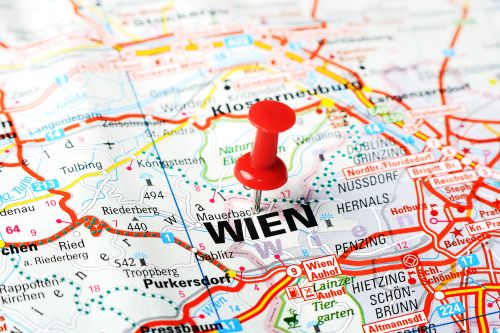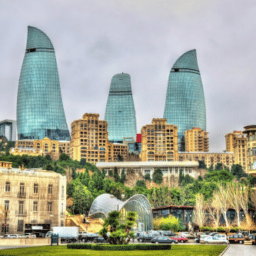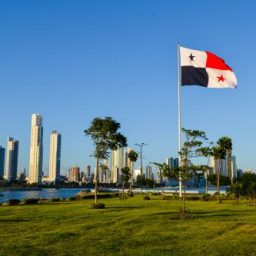

Austria is a motherland of many talented individuals who have achieved international fame. Wolfgang Amadeus Mozart, Ludwig Van Beethoven, Gustav Klimt, and Sigmund Freud are just a few outstanding examples of Austrian brilliance.
Austria is often associated with the German language, and indeed, German is the country’s official language. However, it does not resemble the dialect spoken in Berlin at all. The average German would likely struggle to understand an Austrian speaking in his local language dialect.
Hochdeutsch
Hochdeutsch, or High German, is a term used to refer to a standardized form of the German language. It is considered the most important variant of German today, and forms the basis for most written communication within German-speaking countries.
Hochdeutsch serves as the language of instruction in Austrian Schools. The vast majority of Austrians are proficient in the standard language version and their local dialect. Speaking with Germans or foreigners, they tend to choose it over the vernacular for mutual understanding.
The standardisation of the German language began in the 15th century and accelerated with the introduction of the printing press. Martin Luther’s work, particularly the Bible translation from 1522, played a significant role in standardising the language. Another milestone was the publication of Johann Christoph Gottsched’s German grammar textbook in 1748.
Austrian German (Österreichisches Deutsch)
Austrian German is a wide term encompassing various regional accents that not only differ from the standard language but also from one another. Some of them are easier to understand for German speakers, while others pose a real challenge for native Berliners. Each accent features its unique vocabulary and expressions.
History of Austrian German
The standardisation of German in Austria began in the 18th century, due to the introduction of compulsory education. The dialect was strongly influenced by the Bavarian and Alemannic languages, which gave a unique character to Austrian speech. Given the historical and geographical context, it is easy to detect the influence of Czech and Hungarian on the local dialect.
Austrian vocabulary
Most Austrians are fluent in standard German and use it in formal contexts. However, in everyday life, they often choose their own way of speaking. Here are some example words from the Austrian dialect (AT):
Paradeiser (AT) / Tomate (DE) – tomato
Erdäpfel (AT) / Kartoffel (DE) – potato
Fisolen (AT) / grüne Bohnen (DE) – green bean
Marillen (AT) / Aprikosen (DE) – apricot
Palatschinken (AT) / Pfannkuchen (DE) – pancakes
Jänner (AT) / Januar (DE) – January
Sackerl (AT) / Tüte (DE) – plastic bag
Bankomat (AT) / Geldautomat (DE) – ATM
Stiege (AT) / Treppe (DE) – staircase
Servus (AT) / Hallo (DE) – hello
Fetzen (AT) / Kleidung (DE) – clothing
Gatschhupfer (AT) / Moped (DE) – scooter
Grüß Gott (AT) / Guten Morgen – Good morning



Austrian pronunciation
The Austrian dialect can be recognized by a few differences in phonetics, such as prolonged vowel sounds that are not typical in standard German. Additionally, the accent has been known to be far more lyrical than other varieties, making it pleasant to listen to. The word stress may fall on other syllables than in Hochdeutsch.
Austrian grammar
There are minor grammatical differences between the Austrian dialect and standard German, which should not affect the overall understanding of a text or conversation. Austrians use the past tense form of sein as an auxiliary verb for some motion verbs, whereas standard German employs haben. For instance, the expression “I slept” in Austrian would be Ich bin geschlafen instead of the usual Ich habe geschlafen.
In Austria, diminutives are more common than in Germany. They are formed slightly differently, by adding the suffix -erl or -l instead of -chen or -lein. Further differences touch the prepositions. For example, German pupils learn an der Schule, but Austrian students spend their time in der Schule.
Austrian politeness
The Austrian dialect is considered more polite than standard German. Austrians apologise, express gratitude, and explain their behaviour frequently. An old joke in the region says that a German never apologises using more than 3 words (Tut mir leid, for instance), while an Austrian struggles to limit himself to just 3 sentences.
Austrian idioms
Let’s have a look at the most interesting Austrian idioms.
Aufgewärmt ist nur ein Gulasch gut – “Reheated food only tastes good when it is goulash”. This proverb gives a bit of advice about relations. It reminds us that going back to ex-partners or renewing old friendships is not always the best idea.
Bist du deppert – This sentence, when terminated with a question mark, offends many (if not all) Germans, as it means “Are you stupid?”. In Austria, it is used preferably with an exclamation mark to show surprise and delight.
Oida – The word literally means “old man”. It is often used by Austrian youngsters to address their pals.
Austrian dialects
The regional dialects reflect the cultural and historical diversity of the country. They vary in terms of lexical and phonological features, sharing numerous traits with variations used in southern Germany and Switzerland. Alemannic dialects are mainly heard in the mountainous regions of Vorarlberg and Tyrol, while Bavarian dialects are present throughout the country.
Alemannic dialect
The name of the dialect derives from a confederation of Germanic tribes, the Alemanni. Some linguists classify it as a separate language. However, the fact that it is primarily spoken and substituted in writing by Hochdeutsch argues against this claim. The Alemannic dialect is used by inhabitants of German-speaking Switzerland, Swabia, the mountainous areas of Austria, Liechtenstein, and a few townlets in Italy and Venezuela.
Bavarian dialect
Linguists analysing the Bavarian dialect face the same dilemma as in the case of the Alemannic dialect—is it a language or a language variation? It is usually spoken, and its users choose standard German for writing. Given its widespread use in present-day Austria, it is also referred to as the Austro-Bavarian dialect.
An international conference is a huge logistical undertaking. A good German translator starts preparing for an event taking place in Austria many days before. He will be capable of working with regionalisms and slight linguistic differences. Make sure your guests will be well taken for during the conference or while visiting Vienna—write us to get a quote.
Minority languages in Austria
The former Austro-Hungarian Empire hosted representatives of many nations. Until now, several minority languages are present in Austria. The Croatians, Hungarians, and Roma people of Burgenland, the Viennese Czechs and Slovaks, and the Slovenes in Carinthia and Styria enjoy official recognition and special linguistic privileges.
Moreover, the linguistic landscape of Austria was shaped by labour migrations, which intensified in the 1960s and 1970s. Many workers from Yugoslavia and Turkey choose the country as their new home. Today, approximately 120,000 people in Austria speak Turkish.
Croatian language in Austria
The Croatian language is widespread in the eastern part of Austria, in Burgenland—the youngest state bordering Hungary. The Croats enjoy special privileges as a recognised national minority under the Austrian State Treaty of May 1955 and later regulations. They are guaranteed access to education in Croatian at primary and secondary school levels. Moreover, they can use the language in official situations. All signs and inscriptions in this area are bilingual. Currently, about 143,000 people in Burgenland speak Croatian (source: worlddata.info).
Croatian settlements began to appear in Burgenland from the 16th century onwards, as people were fleeing Turkish conquests. Their significant presence in eastern Austria served as a pretext for the Czechs to propose the creation of the Czech Corridor at the Versailles Conference to connect Czechoslovakia with Yugoslavia.
Slovenian language in Austria
The Slovene-speaking people were present on the territories of today’s Austria back in the 7th century when the Slavic principality of Carantania was formed. Its borders at that time ended at Salzburg, South Tyrol, and Styria. Later, they were moved further to the south. In 1918, after the formation of Yugoslavia, the new country officially demanded the lands of Southern Carinthia. In 1920, a plebiscite was held: 59% of voters chose to remain in Austria, and 41% decided to join Yugoslavia. The Austrian State Treaty of 1955 eased slightly the emerging conflict by granting special rights to minorities.
Slovenes in Austria live mainly in Carinthia and Styria. The vast majority of them are bilingual, with perfect command of the German language. They speak a local dialect of Slovene. Today, the minority counts around 50,000 people (source: Minority Rights Group International).
Large-scale recruitment for an international company can pose a real challenge. If you are looking for specialists who speak multiple foreign languages, do not waste your time and funds organizing costly verification interviews. The Focus Audit Tool will test all the required language skills. The process takes part online. You will receive reliable results no later than 48 hours after a candidate completes the test.



English language in Austria
English is a common foreign language among Austrians. Around 73% of the population, 6.2 million people, can hold a casual conversation in English (source: Polyglot Geek). Obligatory English classes in schools and similarities between German and English make it easier to learn for the local community. Especially in big cities and close to tourist attractions, you will not have problems with communication.
Austrian literature
The roots of Austrian literature can be traced back to the Middle Ages. It is a wide term that includes works written both in German and Austrian dialects. The genre of German knightly poetry, minnesang, was born there.
Among the classic Austrian writers, it is impossible not to mention the 19th-century playwrights: Franz Grillparzer, Johann Nestroy, and Ferdinand Raimund. Their works contributed to shaping the identity of Austrians.
During the modernist period, in the first half of the 20th century, Austrian literature gained worldwide recognition thanks to Arthur Schnitzler, Robert Musil, and Stefan Zweig. Their works are dominated by themes related to psychology, society, and the human condition.
After World War II, Austrian literature focused on reflection on the past and search for identity. Many works were dominated by a critical view of history, society, and politics. The 21st century brought 2 Nobel Prizes for Austrian writers: Elfrede Jelinek received the award in 2004, and Peter Handke in 2019.
When in Austria, speak Austrian
Discover the Austrian dialect by yourself. Visit majestic Vienna, green Graz, picturesque Innsbruck, and other towns and townlets of the country. Savour regional cuisine and get to know locals. To make sure, you will not only get around easily but also enjoy meaningful conversations on different topics, sign up for a German course. Give us a chance to show you that learning languages can be fun!















